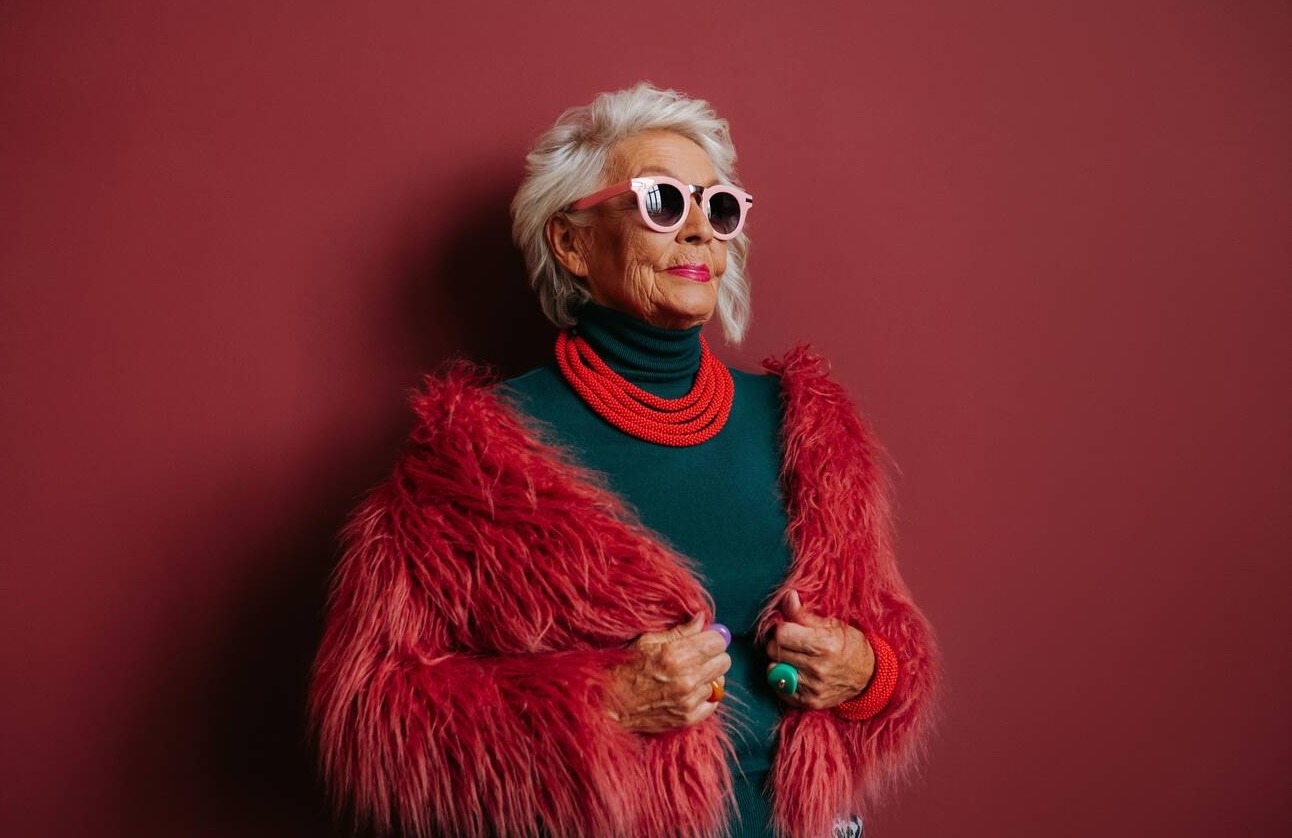
“Don’t punch down, we always say.” Ian Quaife leans in towards the camera, black and gold sunglasses on top of his shaven head. We’re chatting about the millennial-boomer
culture war, where the younger generation is pitted against “well-off” retirees. But 66-year-old Quaife, still working beyond state pension age, sees past this artificial divide. He lists the problems that affect both generations, such as the cost of living and sky-high rents. “Look at the common ground between older and younger people,” he says.
Quaife manages Bristol Older People’s Forum, a charity that challenges the “ageist narrative” by running workshops for other voluntary sector organisations. They also run a record club where older people share their favourite music – everything from 60s pop band Manfred Mann to electro-punks Sleaford Mods. One of the stereotypes they are trying to shift is the “grumpy-or-wise” dichotomy, where older people have to be one or the other. “Fit-or-failing” is another example. “Older people are [either] super-human, running marathons at 95,” Ian says, “or they’re stuck in a care home. There’s nothing in between.”
I ask him how we should treat older people, a cohort that can range from 55 to 100 years of age or more. “It’s about making sure they aren’t invisible,” he tells me. If you’re a graphic designer, make sure you’re representing older people, “but not wandering about hunched over walking sticks or looking forlornly out of windows.”
Beating age bias
“Ageism” – coined by gerontologist Robert N. Butler in 1969 to explain the discrimination suffered by older people – grows from a host of internalised stereotypes and biases. These came to the fore with renewed power during the Covid-19 pandemic, when the needs of young and healthy people were set against those of the old. A 2021 study, published in The Journal of Gerontology, compared media reports during the pandemic in the UK, US and Australia, and found that public ageism took similar forms, from name-calling (“coffin dodgers” or “grey shufflers”) to a “so-be-it” attitude that abandoned old people to the disease.
But ageism can take subtler forms. It can also spring from good intentions. We compliment those who look young for their age, as if this is always a good thing. Doors are held open. Shopping bags carried. Email accounts are set up for relatives, even if they never asked. “Just imagine it’s you in 30 years. People want a say in everything you do. In your money. In what you eat. In how you go from one place to another,” journalist Ann Peuteman tells me. She’s written three books in Dutch about old people, Grijsgedraaid (“worn out”), Verplant (“transplanted”, alluding to care homes) and her latest, Rebels: The Resistance of the Over-75s, published in 2022.
Rebels follows a group of people who resist the spirit-shrinking stereotypes placed on them by their families, the institutions they inhabit, and society. Like dapper 86-year-old artist Leo De Beul. He once commissioned the photos in the View-Master discs – those 3D photo viewers popular in the 70s and 80s – and now spends his time painting and organising exhibitions. “Creativity is the best – and perhaps only – buffer against growing old,” he says. Or 80-year-old Greta Vandeborne. After her beloved husband Romain died from motor neurone disease, Greta published Nine Years with ALS, helping her to “find a new path” and giving hope to others battling the same condition. Then there’s Guy Bottu, 85, who enjoys a regular glass of champagne and ignores all the well-meaning advice to take it easy. “That is life-threatening,” he says. “If you rest too much, you will eventually find yourself unable to get out of your armchair.”
Now a film version of Rebels, made with director Brecht Vanhoenacker, will be shown with English subtitles for the first time at the online Legacy Film Festival on Aging, which will take place in January 2025. The festival’s mission is to “inspire, educate, and entertain intergenerational audiences on issues of ageing”.
Caring and listening
Does Peuteman think our ageing society is becoming more aware of discrimination? “Things are changing,” she tells me, but she fears that change will be top-down rather than from the grassroots. In Belgium, for instance, she’s encountered many projects devoted to elderly care and age-friendly cities, but she’s never seen anyone over 70 on their boards. “We should really start asking older people, what do you want to get out of life?”
As the effervescent Maude Chardin said in Hal Ashby’s 1971 Harold and Maude (a film exploring the romance between the 79-year-old and a young man) “Oh my, how the world still dearly loves a cage.” When we combine a narrow outlook with what scholar Margaret Morganroth Gullette calls “decline ideology” – the widespread belief that will automatically deteriorate with age – we arrive at two questions. How can we escape ageist stereotypes? And what is the secret sauce the age rebels possess that might help us transform our own lives today?
Debates about ageing are, at root, debates about how best to live out our lives. We might see our life as a performance: a dance or drama that we play out over time. On the other hand, we might adopt an approach that philosopher Margaret Urban Walker calls “life as a career”: a self-directed journey towards success. Yet behind both these attitudes lies the presumption that life is lived by a lone individual. They ignore the years of nurturing by caregivers (primarily women), family, friends and significant others. When we bring care into our thinking, we move away from heroic autonomy towards ideas of mutuality and interdependence, with “care as the key to the comprehensive changes we need for any sustainable future”, as feminist Lynne Segal writes in Lean on Me: A Politics of Radical Care.
Older people are often being cared for, and they are often carers of each other and the younger generation. But good caring also requires the ability to listen, as Peuteman reminds us. “You get this idyllic image of the woman in a wheelchair, sitting in the sun with a dog by her legs. Then the expert comes and starts explaining what the lady in the wheelchair feels and wants,” she says. “But nine out of 10 times, the lady in the wheelchair is perfectly capable of explaining her problems herself.”
The recipe for the “secret sauce”
This is why, when it comes to ageing, an ethics of rebellion can be useful. Too much mildness and cooperation risks obscuring what is most unique and vital about us. In her book The Call of Character: Living a Life Worth Living, philosopher Mari Ruti writes, “it is quite possible that the more we pursue ‘balance,’ the more socially disengaged, the more bland and boring we become.” Moreover, what Ruti calls the “upside” of anxiety is precisely the awkward energy that pushes us towards more fulfilling projects.
That’s what I see in the age rebels. Not a renunciation of the anxiety and even despondency of old age, but a full embrace of ageing’s joys and sorrows in order to make new plans and connections – whether that’s organising art exhibitions, advocating for care home residents or continuing to work, and enjoy work, past retirement.
To embrace our own ageing, then, we first need to re-imagine it. So here’s my advice. Instead of a performance or a career, consider your remaining days as a body of water: an unfathomable sea, or a fast-moving river. Just as that water finds bays and coves to flow into, consider the path your life might take and the people you’ll want with you. Heed the rebel voice there too; sometimes soft, sometimes loud, but always where you left it – there in the shallows, or down in the deep. Then float and see where it leads; not forgetting, at least once in a while, to kick firmly against the tide.
For more information on the Legacy Film Festival on Aging, visit https://legacyfilmfestivalonaging.org/.
This article is dedicated to the author’s late father Martin Walsh (1940-2024), an age rebel in his own way. It was published in New Humanist’s winter 2024 issue. Subscribe now.


